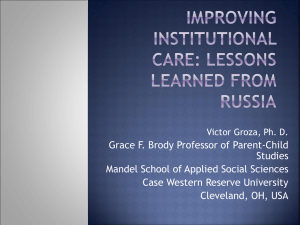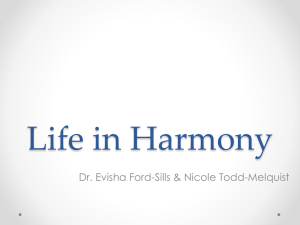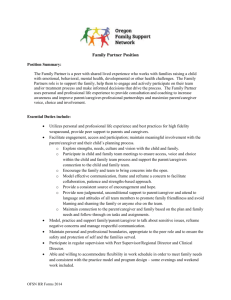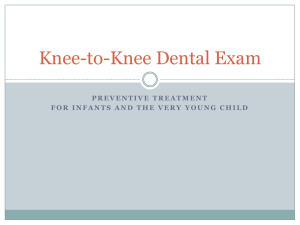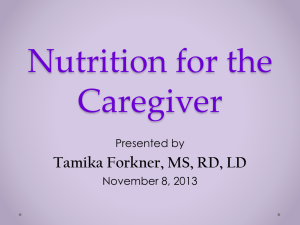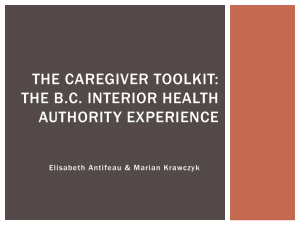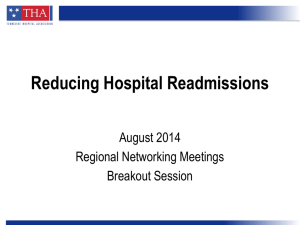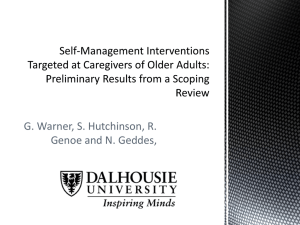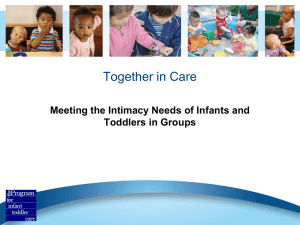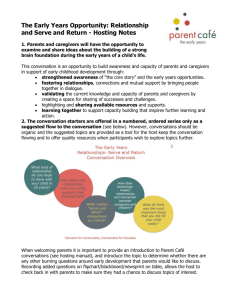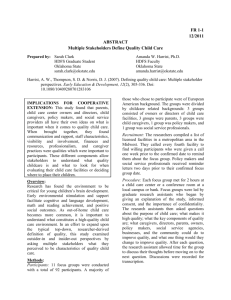SCRIPT NUMBER 139 CANCER CAREGIVERS
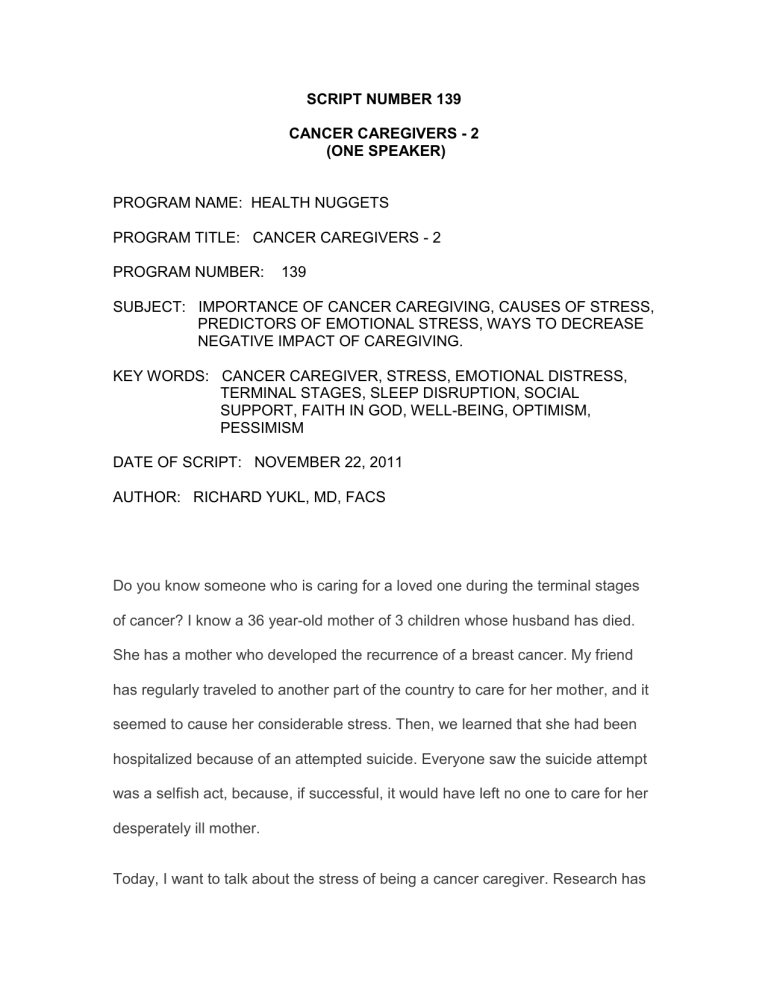
SCRIPT NUMBER 139
CANCER CAREGIVERS - 2
(ONE SPEAKER)
PROGRAM NAME: HEALTH NUGGETS
PROGRAM TITLE: CANCER CAREGIVERS - 2
PROGRAM NUMBER: 139
SUBJECT: IMPORTANCE OF CANCER CAREGIVING, CAUSES OF STRESS,
PREDICTORS OF EMOTIONAL STRESS, WAYS TO DECREASE
NEGATIVE IMPACT OF CAREGIVING.
KEY WORDS: CANCER CAREGIVER, STRESS, EMOTIONAL DISTRESS,
TERMINAL STAGES, SLEEP DISRUPTION, SOCIAL
SUPPORT, FAITH IN GOD, WELL-BEING, OPTIMISM,
PESSIMISM
DATE OF SCRIPT: NOVEMBER 22, 2011
AUTHOR: RICHARD YUKL, MD, FACS
Do you know someone who is caring for a loved one during the terminal stages of cancer? I know a 36 year-old mother of 3 children whose husband has died.
She has a mother who developed the recurrence of a breast cancer. My friend has regularly traveled to another part of the country to care for her mother, and it seemed to cause her considerable stress. Then, we learned that she had been hospitalized because of an attempted suicide. Everyone saw the suicide attempt was a selfish act, because, if successful, it would have left no one to care for her desperately ill mother.
Today, I want to talk about the stress of being a cancer caregiver. Research has
suggested that the stress it causes expresses itself in a variety of ways including feelings of anxiety, fatigue, and low self-esteem.
Women become cancer caregivers more often then men. Most caregivers are older than age 55, and most are related to the person for whom they are caring.
Caregivers play an important role in the management of cancer. They are expected to actively participate in making decisions concerning the patie nt’s treatment, and they deliver many of those treatments. Their optimism or pessimism influences the quality of the patient’s care as well as the likelihood of the patient requiring premature or otherwise unnecessary hospital admissions.
Studies have shown that caregivers receive some valuable rewards from caring for a cancer patient. They feel the satisfaction of providing care for a loved one, and a feeling of closeness with the cancer patient. Despite these rewards, caring for a cancer patient is generally associated with enormous stress. The caregiver often experiences powerful emotions. The emotions may even be stronger than those felt by the patient, and they can continue for up to a year after the patient has completed their cancer treatments because of concern for the patient’s future. A caregiver’s emotional distress can damage their health. They feel sadness, anger, grief, guilt and loneliness just like the patient, but, as a caregiver, they must put their feelings and needs aside, not admitting to them even if they are overwhelming. Otherwise, it could interfere with the patient’s care. One scientific study has identified that the emotional distress of a caregiver can lower the patient’s 5 year survival by as much as 63%.
If you become a cancer caregiver, factors that predict the likelihood that you will develop severe emotional distress include such things as an emotional strain in the relationship between you and the patient. If a strain predates the onset of cancer, you may give care grudgingly. Other predictors include poor communication patterns between you and the patient, work overload and a lack of having your own support system. Care giving is time consuming. Cumulative sleep disruption and fatigue is common among caregivers, who are often on duty working on demand 24 hours a day. The continuing responsibilities often lead the caregiver into significant social isolation.
The caregiver helps to meet the medical needs of the patient. In addition, they also frequently need to help pay financial costs such as transportation, home care and lost wages. Their stress can be lessened if they, themselves, are financial security, by stability at their work, and by the social support of others.
Unfortunately, caregivers usually find the support they get in all of these areas decreases over time, while the financial, social and emotional costs continue to rise. My 36 year-old friend who attempted suicide later confessed that she felt so alone and overworked, her life became intolerable to her. She had to work a second job to pay her bills. She had little time to interact with her children, so they became distant from her and began to perform poorly in school. Her sleep patterns became disrupted. Her health failed, and she developed a severe pneumonia requiring hospitalization. Her faith in God had been her source of strength, and it began to fail.
If you are currently a cancer caregiver, how can you lessen the emotional toll that
it is causing? First, don't neglect yourself. Setting aside time for yourself can help you tolerate the emotional stress. Taking even a few minutes every day to do something you find enjoyable helps, so make time to be with your children and your pets, call a friend, or to work on a hobby every day. Ask friends and family members to help you with some of the patient care responsibilities, giving you time to rest. Also, be active. Working in the yard or the garden can help, and even light exercise such as taking walks can make you feel less tired. Finally, maintain your faith in God. Studies have shown that higher levels of faith will lower the emotional distress associated with care giving, as well as improving your sense of well-being. Faith allows both the caregiver and their patient to find answers concerning the meaning of life, and that will provide a foundation for hope in the presence of suffering whatever the disease process.
If you have a family member, friend or colleague who is caring for a cancer patient, understand that your care-giving friend is experiencing extraordinarily difficult times, both emotionally and physically. You can help them by offering to care for the patient for even a few hours to give them a rest, and by just being there to emotionally support them as they live through grief and a sense of loss.
Do not offer to help them and then find reasons to excuse yourself when the time comes to help. Be there for them when they call.
Health Nuggets is written by Dr. Richard Yukl, a medical doctor working in the
United States. The medical views expressed in this program are his and may differ for your particular health needs. If you need medical advice, please consult a medical professional in your area.

